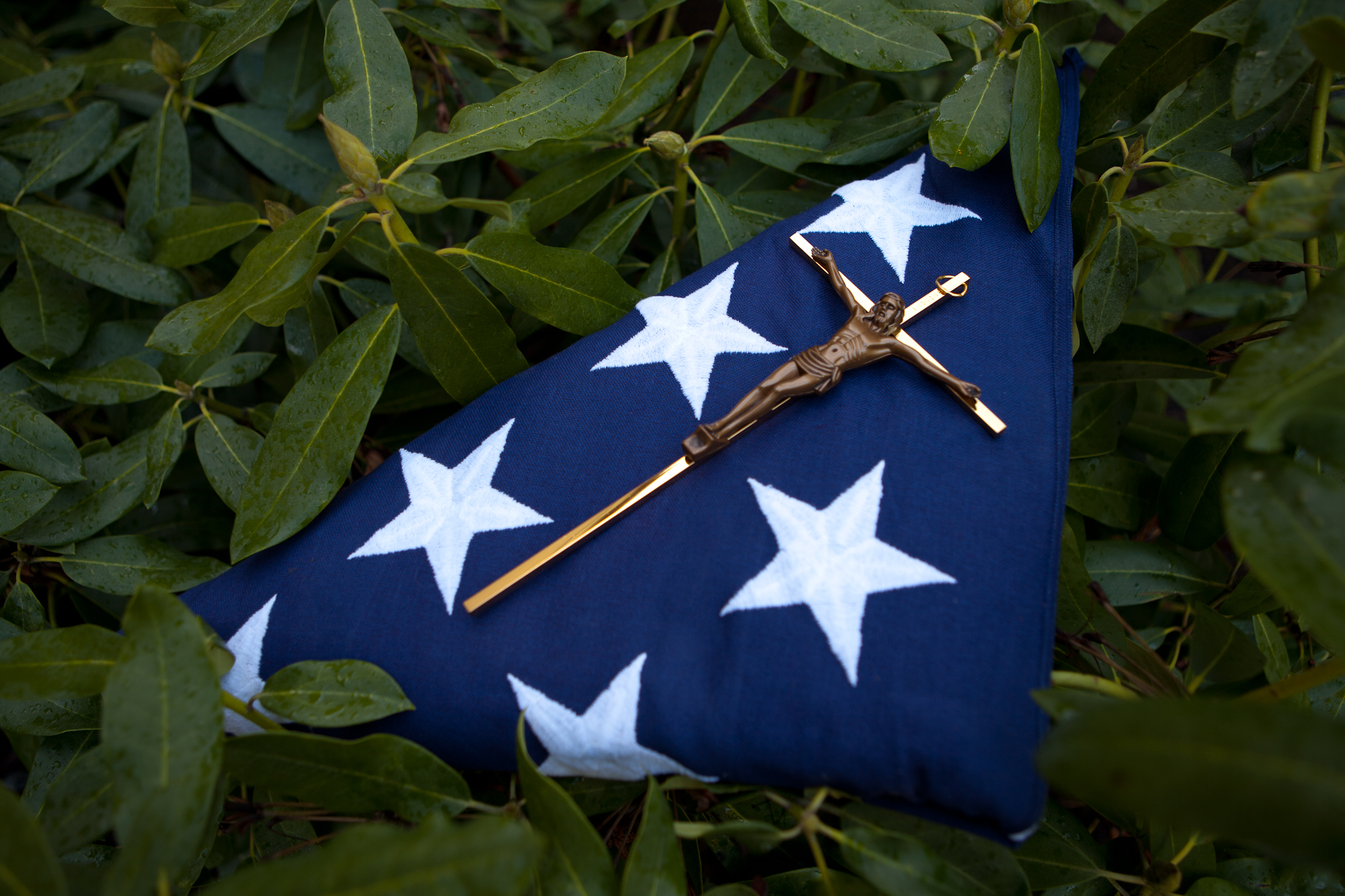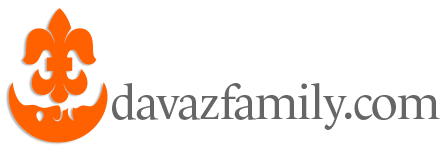Eulogy: Count him among his fallen comrades

In the several circumnavigations we made of the western United States, like Magellan, at the same speed, covering the same distance, in those halcyon days of the 60’s and 70’s, when nothing was bad for you and gas was 20 cents a gallon, our destination was always a 200-acre cattle ranch just off US 2 in Pend Oreille county. The five petrified sardines were let out of the station wagon for a few days to seek adventure in western foothills of the Rockies, that remote corner where Canada, Washington and Idaho meet. My Dad had a curious need to pass that way, usually before moving on to something new. We were there about a month ago under those circumstances.
It was a winter visit. We had them before. Close families, sitting around hot kitchens telling stories about hunting, fishing, ranching and grizzly logging accidents, in that hardscrabble place of great beauty and substantial people at the outer limits of the inland empire. A place of Greater Depressions, self-reliance and self-sufficiency, cowboys and lumberjacks. The meat that you ate was likely on the hoof, maybe in the cross-hairs of a rifle scope a week to a month before. Your fancy holster is denounced there as “storebought” and your Marlboros as “tailor-made.”
We made SUMMER trips, when they work like beavers until ten, sometimes eleven at night, driving the last load of logs into the mill or putting up the last bale of hay. They collapse into chairs around midnight to complain about getting nothing done all day. Up again at five.
My father was born there in 1930 and thus began the colonial phase of a personal historical cycle that would feature a revolution, an antebellum, a war, reconstruction and its gilded age. Through those personal historical epochs, he never broke continuity with his values of hard work and ambition-combined-with-charm, self-sufficiency and self-reliance, love of nature, education, perseverance, thrift, family and faith in people, even as he pivoted at those turning points to confront periods of significant change. He would pass those values on to two succeeding generations, better than he found them.
My uncle Fred pointed out to me a month ago that the Davaz siblings were split half and half, Depression and post-Depression. Better not have too many kids! How would you provide for them? When I asked my Dad once to describe the war years, expecting to hear echoes of my mother’s colorful and patriotic tales, all he remembered was rationing. At 18, he voted with his feet, moving east where, within four years, he went from buck private to first lieutenant; met and married his wife of nearly 60 years in the real colonial bastion of Maryland. He began to raise a family of his own, going from being a single 18-year old to a married father of five in nine years. Carl, Jr. and Kim would later pioneer our extended family, including the first grandchildren, and Dad always regarded Carl as the foremost successful, wise and loving family man among us.
In the consolidation of his revolution, he actualized his status as a Phd outdoorsman in the country’s last frontier, early 1960’s Alaska. My dad was a kid about hunting and fishing. Surely he outgrew it? Not in 75 years. We did. Over time, one-by-one, four of us would have to be dragged to do it with him. A fifth, Dennis, usually dragged him, and continued to do so for 50 years, to my father’s pride and joy.
During his antebellum, he steadily advanced in his career, worked ridiculously long and hard. With my mother’s help, he elevated the art of the schmooze and became the perfect host, keeping just a sliver of daylight between himself and the top of his game rather like his son, Nick.
Modern warfare essentially consists of bringing capitalized force against capitalized force, in overwhelming superiority. That’s how you “win.” When capitalized forces meet undercapitalized or uncapitalized forces, they defeat or annihilate them. When it’s more even, luck and the weather can make as much difference as strategy and tactics. Tip of the spear? As a career logistician, my father armed the armed forces of at least five nations, making sure there were enough spears in the right places at the right time, that the shafts were true and the points sharp. When they broke, he fixed them. He countered the Soviets and the Chinese in that effort directly or through proxies in places like Korea, Taiwan, Vietnam, Germany and the middle-east. Even so, he derived his greatest rewards from working with and through people in whom he had tremendous faith, just as they did in him.
He, like so many others of his time, passed through a one-way portal on his way to Indochina, and things would never be the same afterward, for him or for us.
His reconstruction from that was mostly cerebral; his frontiers intellectual. He pursued his graduate studies, and much more. He read the classics, history, studied the great philosophers, compounding his knowledge, and developing his critical thought and logic, faculties native to his brilliant son, Doug. He was a scoutmaster, built canoes and furniture (with slave labor). He contributed to the institutional memory of the United States Army and taught legions of officers from all over the world everything he knew. His final substantive command found him in a role as a senior logistician facing off against the Red Army and the spectral prospect of a fast-moving armored invasion of western Europe, should the thermostat ever be turned up high enough in the Cold War.
So what did I get from him? If I didn’t get anything else, I got the IMPERFECT abstract art and experimental science of raising boys, in whom, in addition to their own substantial personalities I see reflections of myself, my uncle, my brothers, my father and his father. They will spend the next seventy-plus years phonetically spelling that singular five-letter name.
Did I leave out the gilded age? That period where he settled down, bought his first house, redoubled his devotion to his wife, his church and community. Who would that have been about if it weren’t about all of YOU? We were long-gone, some to far-away places, chasing our dreams and unfurling our histories. We could only alight here infrequently, passing through, on our ways to start new things.
Read the obituary, the one in the paper and on the website, the high-contrast, black and white piece of journalism with the cause of death featured prominently. It’s different from the one you have here, the church rendition. As you mourn my father with us this weekend, catalog him properly, in the right column, paragraph and sentence. Count him among his fallen comrades in all those places over all those years. That’s what he would want. He would also exhort you to know where you are in your history, what you should relegate to the past, savor and attend to in the present and anticipate in the future. Don’t mind that his name isn’t etched on a wall in Washington, DC. He never lingered there. His Washington was here, from Newport to Neah Bay, and with you.
— Les Davaz, St. Joseph Catholic Church, Issaquah, Wash.

What a moving remembrance and tribute to your father. You, Socky and the boys have been in our thoughts, and we keep you in our prayers at this time of loss.
Les I read every word of the eulogy & it was wonderful, well done. I’m the youngest of your father’s generation of Davaz’s. I moved 12 miles from the original Davaz homestead, to the Cusick area, when I married in 1964. Wasn’t around Mickey & Mildred much but instinctively enjoyed their company when the opportunity presented itself.